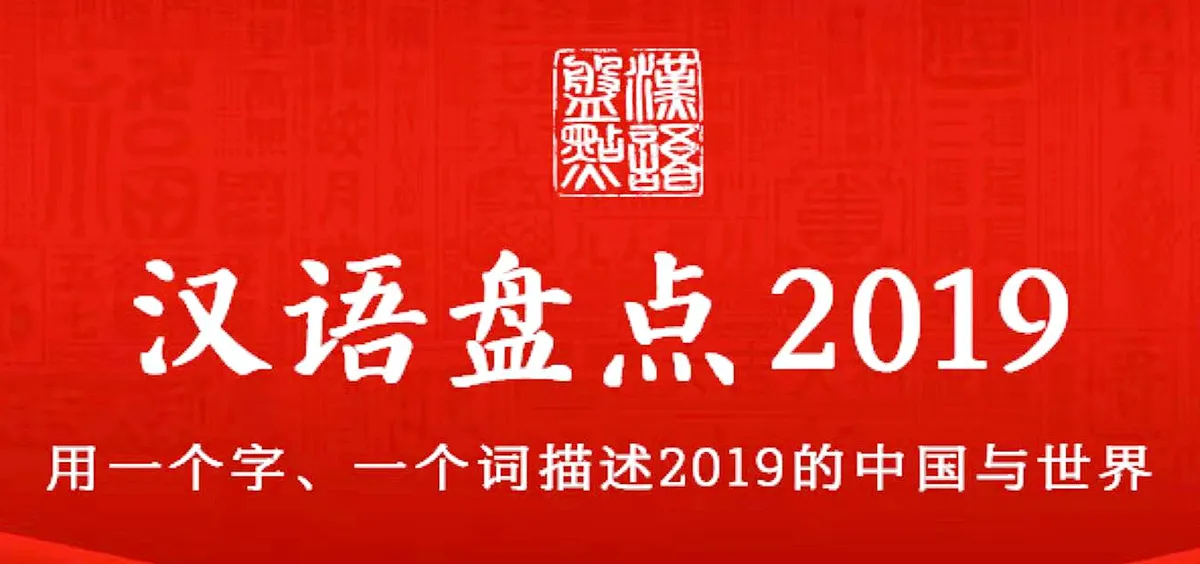Enter your favorite internet slang for The Commercial Press’s word-of-the-year contest!
It’s that time of year again, when we reflect on the year’s defining twists and turns—and the words and phrases that best capture it.
Chinese Pandian is a 14-year-old annual contest organized by The Commercial Press, Tencent, and People.com, in conjunction with the National Language Resource Monitoring and Research Center. Every year, the competition seeks to select the year’s most representative words, characters, and phrases, describing developments on both domestic and international stage. Entries for Chinese Pandian 2019 are open until December 20.
At Pandian 2019’s opening ceremony, some officially nominated characters and phrases included “我和我的祖国 (My motherland and I),” “我们都是追梦人 (We are all dream chasers),” “金色十年 (golden decade),” “巴黎圣母院大火 (Notre Dame Cathedral fire),” “区块链 (blockchain),” “粤港澳大湾区 (Guangdong-Hong Kong-Macao Greater Bay Area),” “70周年 (70th anniversary),” “都挺好 (all is well),” “中美磋商 (China-US consultations),” and “垃圾分类 (garbage sorting).” For your reference, last year’s winners were 奋 (effort, diligence), 改革开放四十周年 (the 40th anniversary of Reform and Opening Up), 退 (exit), and 贸易摩擦 (frictions in trade).

Luckily, the Pandian still leaves a unit to the public—top internet slang. Here, netizens are welcome to select their favorite new internet slang for nomination. To enter the Pandian competition, directly post your entry on Weibo with the hashtag #汉语盘点2019#. Participants whose phrases are selected for the top 10 will win book prizes from the organizers.
Here are some of TWOC’s recommendations:
This term describes the punitive system of overtime work at some white-collar professions, with work hours lasting from 9 a.m. to 9 p.m. every day, six days a week.
A term generated from the activity, much-loved by many Beijingers, of rolling walnuts in one’s palms. The phrase is now an all-purpose verb for anything you like (or hate).
People who are addicted to TV dramas often feel like they are “drunk” on a series.
柠檬精 Lemon spirit
In Chinese, people use term 吃醋 (“eating vinegar”) to indicate jealousy. Then, it evolved into a less formal expression: 酸了 (“becoming sour”). In daily conversation, people use “I’m sour” to mean “I’m jealous.”
But creative minds didn’t stop here. They then chose one of the sourest fruits, the lemon, to refer to people who get easily jealous. So, if you are the envious type, you may be dubbed a “lemon spirit” by jesting netizens.










